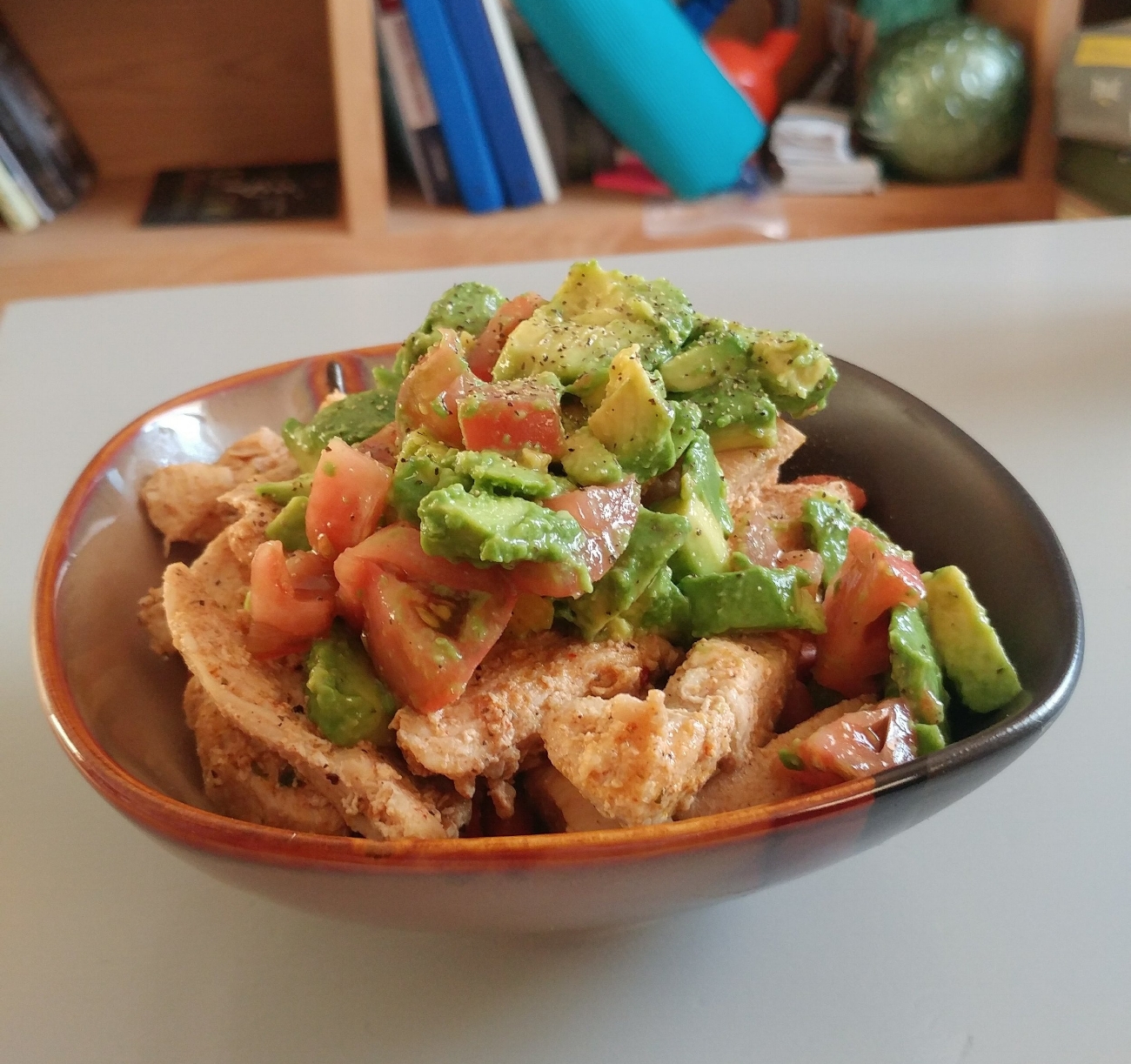if you're looking up things about fitness and/or nutrition you've probably come across the term macronutrients or macros. macros are a hugely important part of strength training and fat loss but can seem pretty intimidating. you'll see it in reference to carb cycling, IIFYM, keto, zone diet, etc. there are a lot of ways to use macros to your benefit, but let's start with the basics!
so what are macros?
pretty simply, they are carbohydrates, fat, and protein.
carbs:
basics: 4 calories per gram. the primary function of carbs are to fuel organ activity (brain, heart, and skeletal muscle).
what you need to know: carbs give you energy, and are the primary source of energy in the body. they fuel your body functions.
they are NOT the reason you have gained weight or are overweight, that only has to do with the amount of calories you eat in a given day/week/etc. you can eat carbs late at night and still lose weight (promise), as long as you are staying in your given calorie range.
the general daily recommended intake is approximately 45 - 65% of your caloric intake. this does vary upon the activity of the person. the more active, the more carbs recommended.
where you can find carbs: fruits, vegetables, potatoes, sweet potatoes, breads, beans, rice, granola, sugary sweets (limit these though)
fat:
basics: 9 calories per gram. primary function is fuel,but also helps with insulation, protection, and transportation in the body. very important for brain function.
what you need to know: fats keep your body going. not the first choice for your body to use as energy, but will be used (especially if you do not consume a lot of carbs)
and fats do NOT make you fat. you NEED fat for your body to function properly. Fat fuels cell function, brain function & development, vitamin absorption, and protects the body's organs. Not to mention, fats keep you fuller longer, so you'll get less hungry.
the general daily recommended intake is approximately 20-40% of your caloric intake. once again, this varies person to person, depending on their lifestyle.
where you can find fats: nuts, seeds, coconuts, oils, avocados, olives, cheese, eggs. (avoid trans fats when possible)
protein:
basics: 4 calories per gram. two basic types of proteins - structural and regulatory. structural proteins work in your skin, cell membranes, muscle, and bone tissue, to help build and repair. regulatory proteins are enzymes, transportation, defense, contractile, hormones, and serums, which work to maintain fluid and electrolyte balance.
what you need to know: protein is the big macro that you'll hear most any fitness person talking about, and for good reason. protein is the key element in muscle building and repair. when you weight lift or run or workout in general you are wearing down or creating tiny tears in your muscles... so you NEED protein to rebuild those muscles to make them stronger for the next time you do that workout.
also, protein is the best macro to keep you full. so if you are cutting calories or just need help not overeating, protein is the way to go.
the general daily recommended intake is approximately 10-35% of you caloric intake. however, if you're active or an athlete, you may need more.
where you can find proteins: chicken, turkey, cheese, eggs, beans, lentils, beef, eggs, quinoa, tofu, soy or whey proteins.
there you have it! this by no means is a complete overview of all of the ins and outs of macros but it is a pretty good overview, if i do say so myself. i will be doing complete posts on each macro at some point in the future along with a post on micro-nutrients, and on all the diets mentioned in the intro.
But if you have any questions right now...I would love to hear them!
You can leave thoughts, comments, or questions below or ask me on facebook or instagram!






